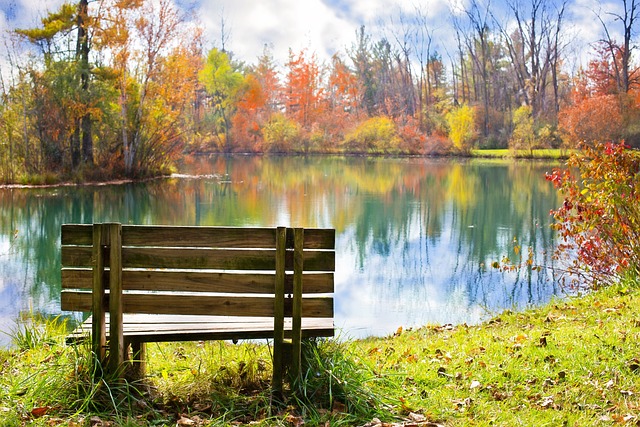|

The coaching sessions I've held over the past few weeks have shown me that there is a strong need and desire for people to get grounded. When the world seems too noisy and we don't have a stable ground to stand on, it's essential to Fall back to basics (a client offered this title. Thanks!).
For me, that means strengthening my routine and making sure my daily anchors are in place. This includes carving out time for myself each day and ensuring a regular structure for meals, sleep, and alone time.
To be grounded means being present in the here and now without ruminating about the past or worrying about the future. When you are grounded, you may be better able to handle stress and challenges and are more likely to make positive choices.
Recent studies suggest that getting grounded can effectively manage emotional distress and improve overall mental well-being, reducing stress and anxiety. Moreover, finding our ground can help us avoid being overwhelmed by negative emotions and to respond to them more constructively. We can cope with challenges and setbacks because we have a stronger sense of self and a deeper connection to our inner resources.
Here are a few tips for falling back to basics:
- Start with a routine. Having a structure can help you feel more grounded and in control. It doesn't have to be complicated, just a basic daily road map. Start by identifying your most important tasks. What tasks must you complete to make progress toward your goals? Then, ask yourself when are you most productive during the day? Schedule your most important tasks during that time. Do you have any obligations that need to be scheduled into your day, such as meetings or appointments? If so, work around those commitments when creating your schedule. Remember to plan timed breaks to help you stay focused and avoid burnout.
- Include daily anchors in your routine. Daily anchors are activities that help you feel centered and connected. Some examples include meditation, exercise, reading, cooking, time in nature, or journaling.
- Structure your meals and sleep. Eating healthy meals and getting enough sleep are essential for physical and mental health. Eat regular meals throughout the day and aim for 7-8 hours of sleep per night.
- Allow yourself some alone time. Everyone needs some time for themselves, especially during stressful times. Make sure to schedule some alone time each day, even if it's just for a few minutes. It can be helpful to ask yourself questions such as: How am I feeling today? What do I need today? Am I overcommitted? Am I setting healthy boundaries?
- Be aware of your default modes or the ways of being you turn to in stressful times. For example, when stressed, some people turn to overwork as a default mode. Recognize your default modes and make mindful choices in your best interest, even if they are not your first instinct.
Taking the time to check in with yourself and set boundaries can help you to stay grounded and centered, even amid chaos. It can also help you avoid burnout and ensure you care for your needs.
Some of my clients offered these additional tips for falling back to basics in the Fall:
- Get outside. Spending time in nature is a great way to reduce stress and improve mood. Take your dog on a walk, hike, or sit outside and enjoy the fresh air.
- Eat seasonal produce. This is a great way to nurture your body and support local farmers.
- Cook comfort food. Cooking and eating comfort food can be a great way to relax and de-stress. Try making a batch of soup, chili, or stew.
- Allocate time to connect with loved ones. Spending time with loved ones can help you feel connected and supported. Make plans to have dinner with friends, watch a movie with your family, or reach out and chat with a friend.

The times we live in can be challenging and uncertain. But by returning to basics and establishing routines, we can create a sense of stability and predictability. So, take a few minutes today to think about what routines you can establish in your own life. It could be something as simple as starting your day with a cup of tea or walking after dinner. Remember, even the smallest changes can make a big difference. Fall is often described as a time to slow down. Take a cue from nature and enjoy the beauty of the changing seasons. Listen to the sounds of nature. Notice how the leaves change color, the days get shorter, and the air gets cooler. These activities can help us find new ground.
With gratitude,
Ana Isabel Sánchez
   
|